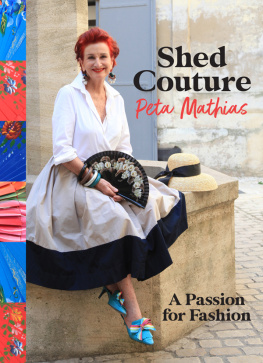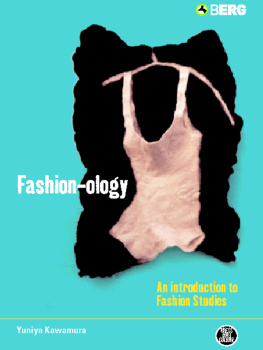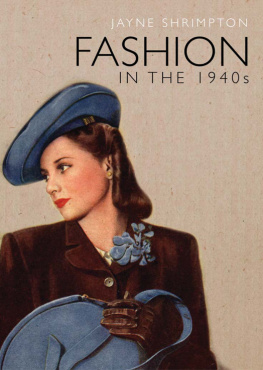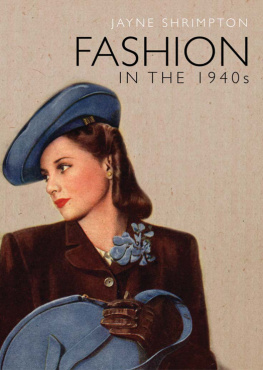T he abuse rang out across the deprived council estate in Leicester, as a group of youths rounded on a tall, overweight teenage boy of mixed Chinese and English blood. It wasnt the first time he had been called queer,chinky or faggot, and it wouldnt be the last, but the boy refused to be intimidated, turning on the bullies and giving as good as he got. Nonetheless, the taunts stung and their subject was to remember them for many years afterwards, even when he had become one of the most famous and adored men on TV.
Ironically, given that background, the bullied boy was going to become known for the kind way he treated the people around him. But back then, nothing was further from his thoughts. The bullying was non-stop. It was endless, it was vicious and it was cruel. It was also to toughen the young boy up and make him determined to show his detractors he was going to make something of his life. And, several decades on, he has done just that.
* * *
On 9 October, 1974, John Tung Shing, a Chinese immigrant living in Leicester, and his English wife Myra were ecstatic. The couple, who had met while working in a takeaway and now been married for years, had just added another baby to their growing brood. In 1969, Myra had given birth to Oilen, and in 1973 to Kwoklyn. Now the baby of the family had arrived, little Ko-Hen Wan, Chinese for Noisy Big City, a name that would prove exceedingly apt when he grew up.
One day he was going to achieve enormous fame as the television stylist Gok Wan, but there was certainly nothing back then that would hint at the glories to come. Little Gok was in for a very rough childhood, and teenage years that would be marred by obesity and self-doubt. But no one had a clue about what the future would hold for any member of the family and at that stage he was simply the adored baby of the family, a little Anglo-Chinese infant with charm and a winning smile.
For John, in particular, it was the fulfilment of a dream. Originally from Hong Kong, he had come to Britain as a teenager from a poverty-stricken background, and although by no means rich now, was settled with a growing family in the west. It was a huge contrast from where he had started out. He came to Leicester from a northern Hong Kong village where his mother would still have been catching fish for lunch, Gok explained. Now John and his wife ran a restaurant, and had built up a stable family life into which the infant Gok had now arrived. They, as their children would also do, had encountered racism and boorishness as a result of their mixed marriage, but the relationship was a strong one. Their family unit would become a haven when, in Goks childhood years, matters got out of hand.
But now all the family gathered round to coo at the new arrival, and he was a little thing at birth.Gok was the weight of a bag of sugar when he was born, Oilen recalled.He was smaller than his first teddy bear. We had to wrap face cloths round his bottom because he was too tiny for the smallest nappies. We called him Babe, and its stuck, even though by the time he was four or five he was as robust as the rest of us. In fact, Gok would have to become very robust indeed and adept at fighting his corner.
It was a very deprived childhood and not at all easy at the time. I was born in a trailer park and we grew up on one of the scariest council estates in Leicester, said Gok referring to Fosse Road North in Leicesters West End.Ive been back since for a drive-around and honestly, I didnt want to get out of the car. Its like the front line out there. Mum is a big, apron-wearing Englishwoman, and we were fat, mixed-race kids. We used to get abuse shouted at us all the time.
Nor was it directed just at the children. Mum was once stopped with Oilen and Kwoklyn in the double buggy and told they couldnt possibly be her kids, Gok said. I dont know how we survived, but it made our family an incredibly tight unit.
It was, in short, blatant racism. No one really knew what to make of the young Gok, as he himself came to understand in later years. My family is very, very close, he said. But it was unusual. We lived on a huge council estate and to be mixed race, and not even black/white mixed race well, it was a huge deal. My parents went through a lot of prejudice. So did Gok. It was to shape his childhood, casting a huge shadow over his teenage years and shaping his character. Indeed, Gok was so unhappy growing up that he refused a request from the Leicester tourist board to highlight his home city after he had become famous, simply because his childhood had been so difficult there.
Even as a very small child, however, Gok already knew where his interests lay. If Gok is to be believed, it was his mother who was initially responsible for his love of clothes. My mum said when I was three I would have to dress myself, he said. I would get into a different outfit to go and pick up my brother and sister from school. I was slightly neurotic about what I was wearing. Stories abound about the number of times the young Gok would insist on changing his clothes. If he had been wearing one outfit all day, then it had to be changed for the excursion to the school gates. With hindsight, it is not hard to see how Gok ended up with the job he did.
Goks parents ran their own catering businesses they still do and the whole family was expected to get involved. Gok, however, was adamant that it wasnt a chore, explaining that he started working for his parents when he was about three. It wasnt like child labour, though, he went on. My parents have always owned restaurants or takeaways and they worked such long hours that my sister and I wanted to spend time with them when we were young, so we helped them out. I loved it. I love cooking and hospitality. I always think now that if I gave up being a stylist, Id probably open a restaurant instead. It was to promote a rather troubled relationship with food, however, as Gok himself was to acknowledge later on.
As so often with the oldest child, it was Goks sister who braved the challenges first and led the way for her brothers. Because the age gap between Oilen and me is quite big, she was going through puberty and adolescence while I was still very much a child, said Gok. She paved the way for me and my brother. She was the only Anglo-Asian at school and she took all those issues on the chin before we even got there.
But it didnt stop the bullying being visited on her two younger brothers as well. Oilen went on to become a childcare solicitor, sometimes having to deal with some very unpleasant cases, and its hard not to surmise that difficulties in her own childhood might have contributed to that.
According to Gok, her influence on him was so great as to influence his sexuality, or so he believed at the time.When Oilen was going through her New Romantics phase in the 1980s, she said: I hope you turn out to be gay, because that will make me really cool, said Gok. Her influence on me was so strong that until I was about 22 I truly believed it was her fault I was gay.
She also encouraged his love of clothes. My real love of fashion came from my older sister Oilen, said Gok. My parents worked in catering so I spent a lot of time with her. She loved Duran Duran, the whole Goth thing and the New Romantics. I loved seeing her getting ready to go out. I loved the idea of her coming back from school and within an hour shed transformed herself. I used to think God, you look so cool.
The two were always very close. When Im trying to remember how I felt about my sister, its the lilac of her bedroom and the dusty-pink dust jacket of her book Little Women, Gok said. One of my earliest memories is of creeping into her bedroom, which I liked so much better than my Superman one, and lying on her bed reading her book, pretending to be her. He might have been laying it on a bit thick, but its clear that from an early age, Gok was attracted to feminine things, choosing his sisters room over his brothers (Kwoklyn was to become a martial arts instructor) and remembering the soft, pastel colours. That he ended up in fashion should have been of no surprise to anyone.

















